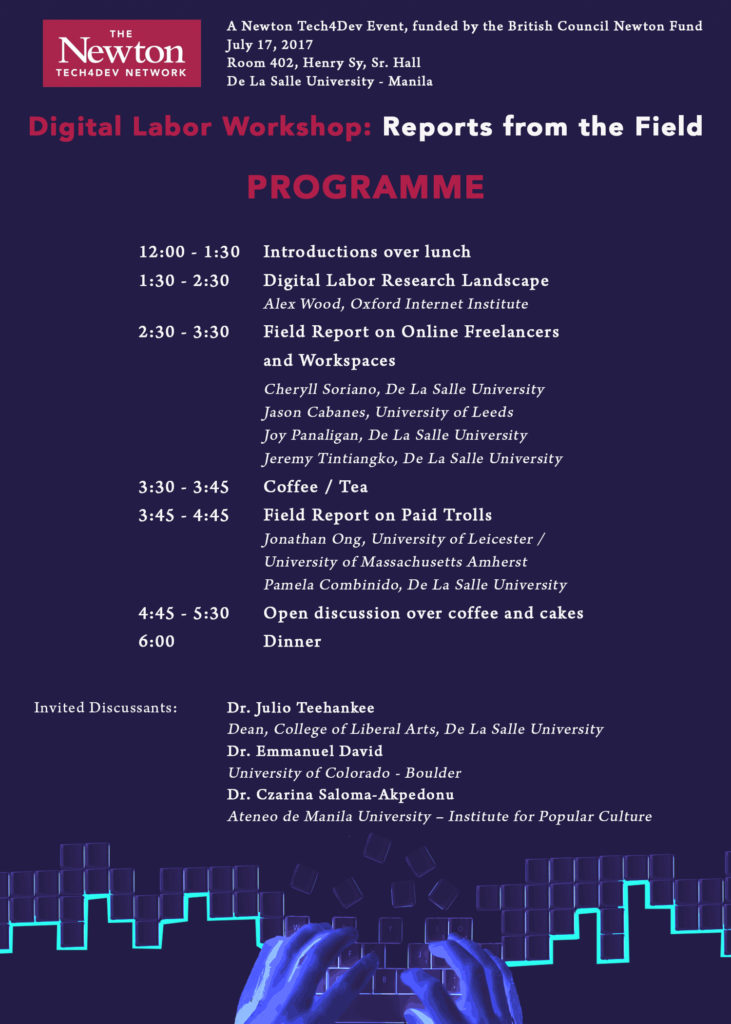
The Newton Tech4Dev Network members working on research about digital labor in the Global South convened last 17 July 2017 at the De La Salle University to present and discuss initial findings of their research.
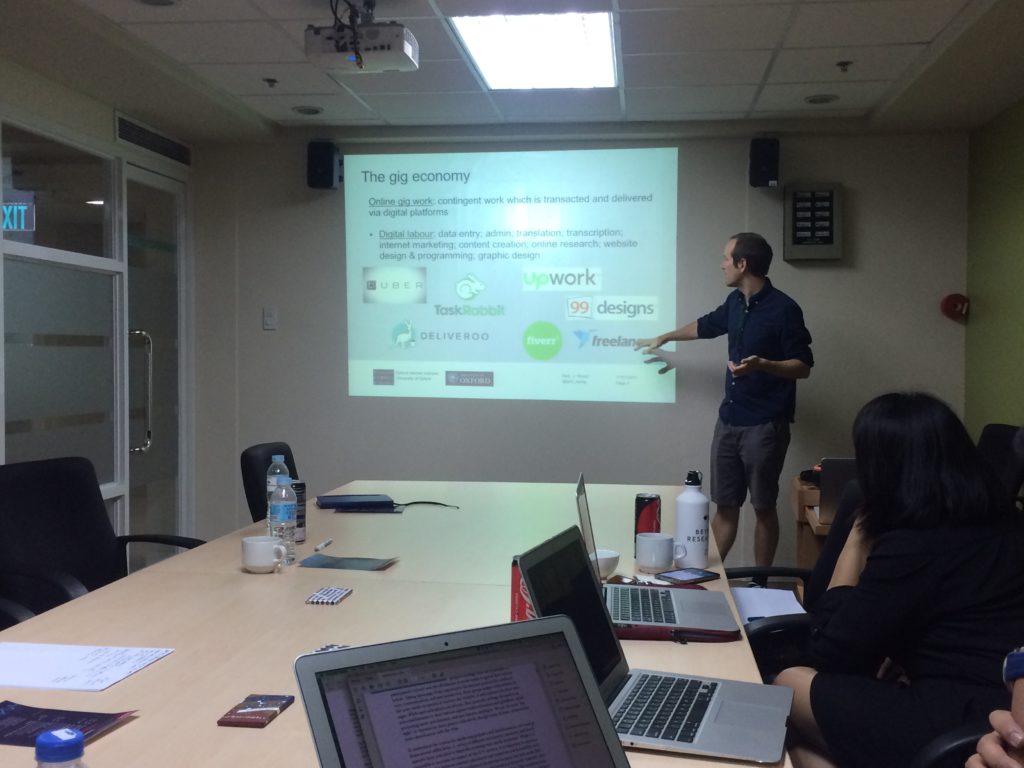
Alex Wood of Oxford Internet Institute opened the workshop with his presentation on “Digital Labor Research Landscape”. Drawing from his work on Online Gig Economy and iLabour research project, he discussed about the state of platform workers in the US, UK and the Philippines. He also presented about global supply and demand trends of platform work, the relation between technology and bargaining power of workers, and the possibilities and challenges for collective action of workers within the online gig economy.
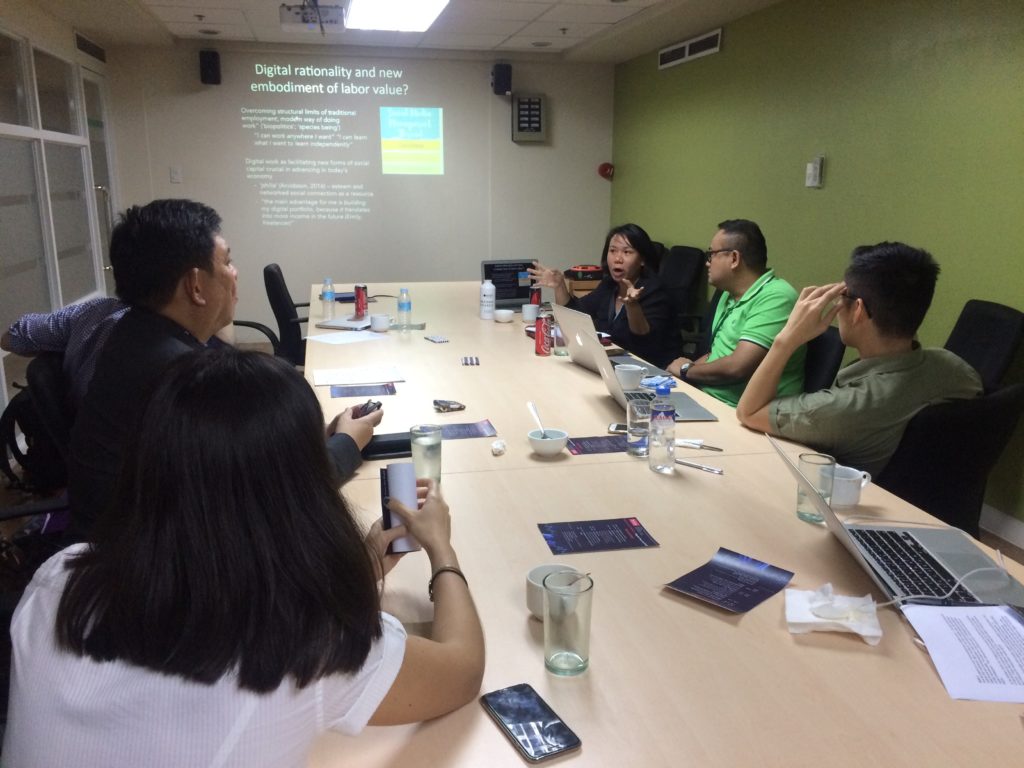
Alex Wood’s discussion was followed by the team presentation of Cheryll Soriano (De La Salle University), Jason Cabañes (University of Leeds), Joy Panaligan (De LaSalle University), and Jeremy Tintiangko (De La Salle University). From Wood’s global and multi-country research approach, the team zoomed into the nuances of freelancer worker experiences in the Philippines. Specifically, they discussed the aspirations and challenges encountered by platform freelance workers, emerging opportunities for overseas Filipino worker (OFW) returnees to work as online freelance workers (OFW 2.0), and the utilization of coworking spaces in the Philippines. The team worked around the idea of “logic of distinction” and “logic of transcendence” to talk about reputational labor among Filipino freelance workers and how they visualize and highlight qualities of being hardworking and their aspirations for professional mobility. The team conducts in-depth interviews with platform workers and visual analysis of Facebook group pages of freelance communities.
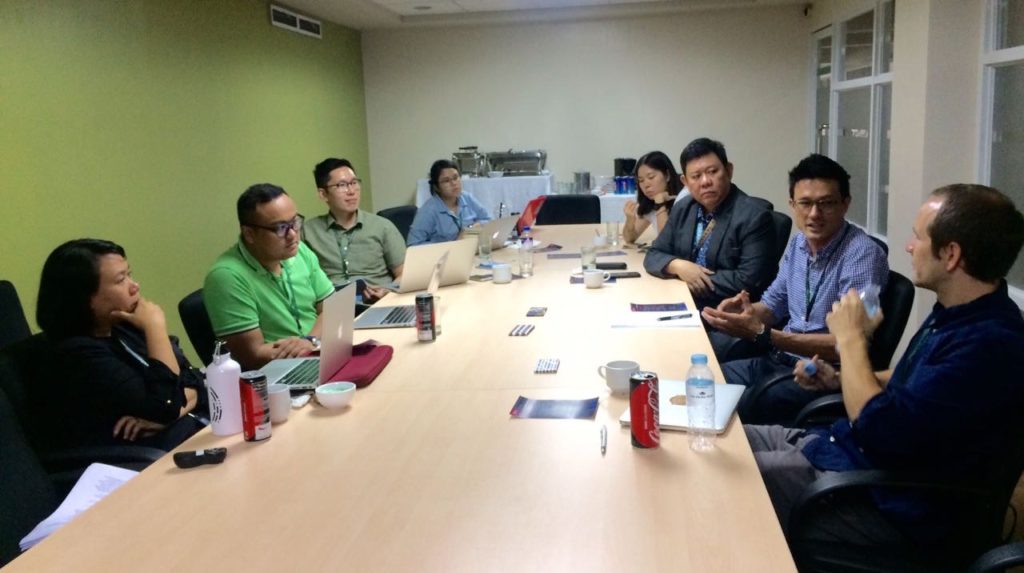
Jonathan Corpus Ong (University of Massachusetts-Amherst) led the discussion on “Producing Digital Disinformation in Duterte’s Philippines” together with Jason Cabañes (University of Leeds) and Pamela Combinido (De La Salle University). They presented initial findings that seek to better understand what an online troll is, specifically those who are paid to perform this role. Drawing from their interviews with managerial to staff level digital campaigners, they shared their motivations, labor conditions, the ways they navigate risks, and experience deep shame and occasional pride in their work that’s publicly derided and deemed morally reprehensible.
Julio Teehankee (Dean, College of Liberal Arts, De La Salle University), Emmanuel David (University of Colorado–Boulder) and Leloy Claudio (De La Salle University) served as discussants in the workshop and provided insights as to how the emergence of this digital labour economy can be put into historical context, what structural reforms could be considered, and what other areas of this research can be pursued.
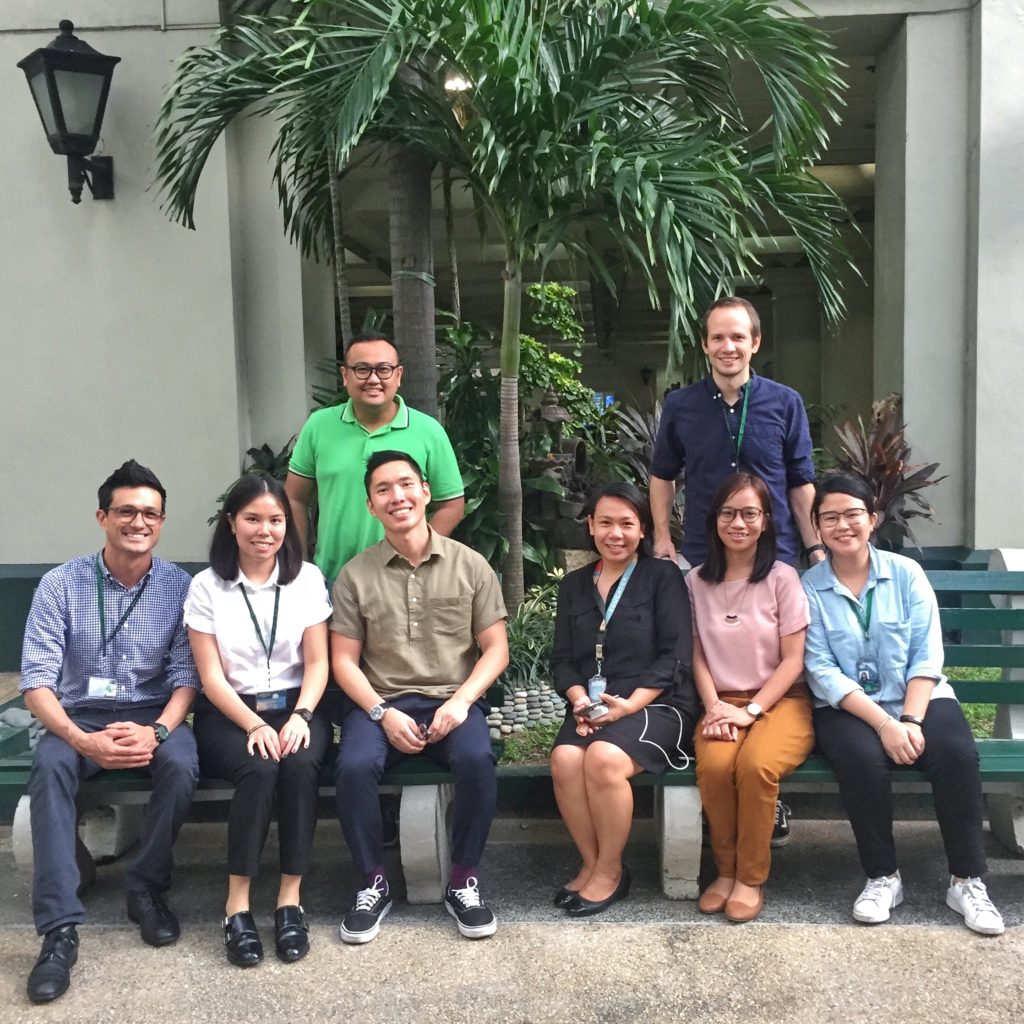
The workshop discussion was followed by a 2-day grant writing session (18-19 July 2017) with Jonathan Corpus Ong, Emmanuel David, Jason Cacabañes, Cheryll Soriano, and Pamela Combinido to discuss future plans and grant applications that can be pursued by the team.